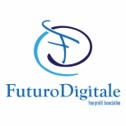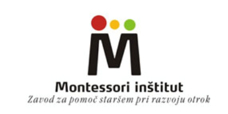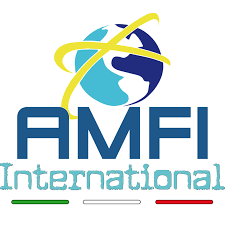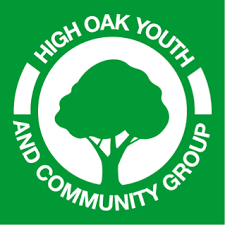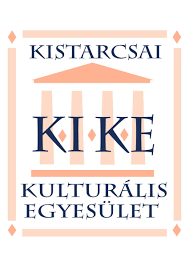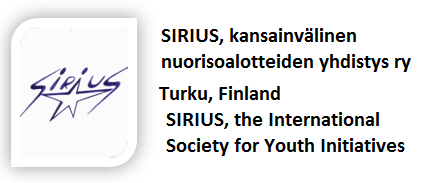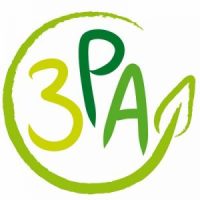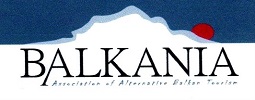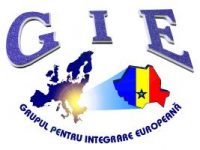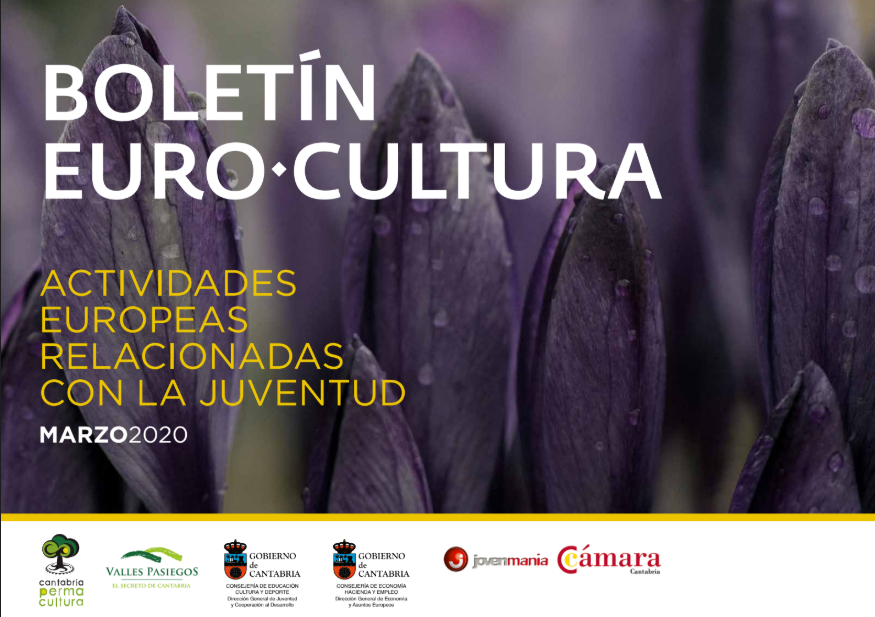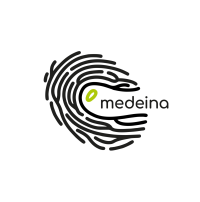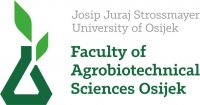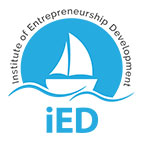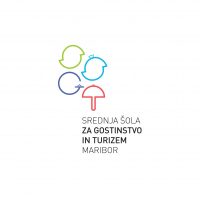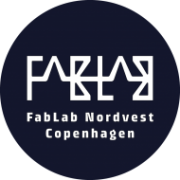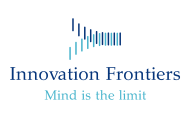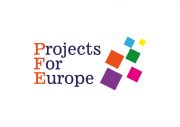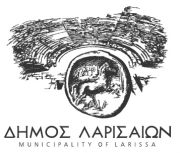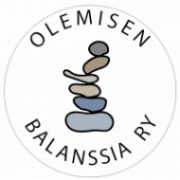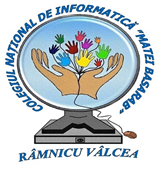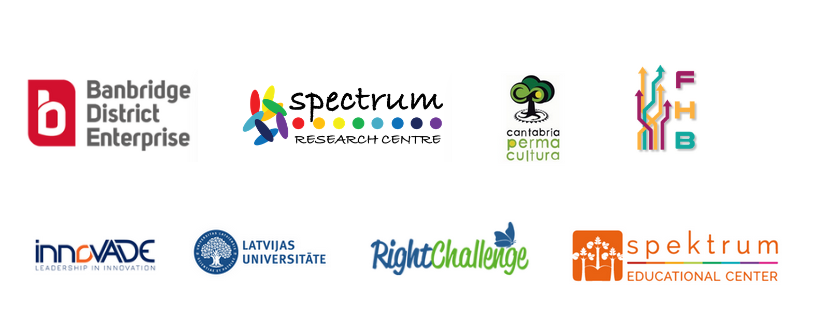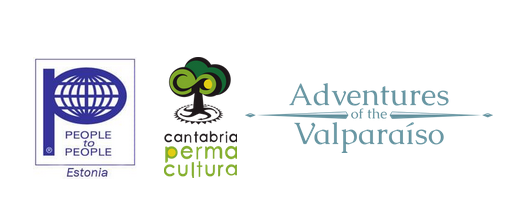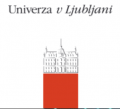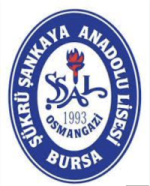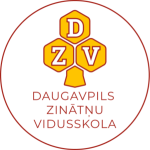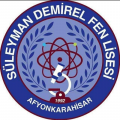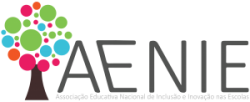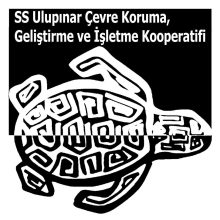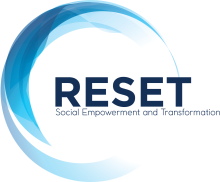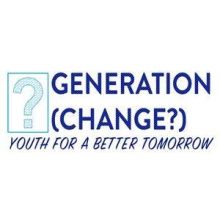3CS
Project details
The EU has some of the world’s highest environmental standards, developed over decades. Environment policy helps the EU economy become more
environmentally friendly, protects Europe’s natural resources, and safeguards the health and well-being of people living in the EU. Environmental
quality is central to our health, our economy and our well-being. However, it faces several serious challenges, not least those of climate change,
unsustainable consumption and production, as well as various forms of pollution. According to the Intergovernmental Panel on Climate Change in
2014, climate change education is about learning in the face of risk, uncertainty and rapid change. Humans have never before been in the situation
now confronting the planet. Education is an essential element of the global response to climate change.
For our specific target groups, the key innovations are
(1) the provision of bespoke in-service training for youth professionals that builds their digital
competences and their pedagogic approaches to enable them design WebQuests and implement challenge based education;
(2) the development of
a suite of bespoke non-formal learning resources built around online WebQuests that specifically challenge young people to find solutions, both small
and large, to climate change issues. While non-formal learning in youth work environments tends to take place in fairly relaxed settings; high-value
non-formal learning environments always involve an element of structure and planning by youth professionals. In properly conceived non-formal
learning programmes that address specific topics like climate change, learning is intentional and usually aims to help participants to:
• Modify or develop some behaviours that relate to the world that we live in
• Develop useful skills for further learning about climate change and other pressing societal issues
• Change their attitudes towards climate change with a renewed focus on finding solutions
• Emerge as peer leaders in the wider climate change debate
Climate change is a Europe wide issue that can be best addressed by educators, youth professionals and young people working together to devise
innovative and feasible actions.
Partners have chosen a challenge-based learning approach that uses WebQuests to build knowledge and understanding of climate change .
A WebQuest is an Internet research methodology focused on the educational process that stimulates research and critical thinking. It is an extremely
simple and rich model for dimensioning educational uses of the Web, based on cooperative and investigative learning processes in the construction
of knowledge. WebQuests involve young people and their youth leaders in an Internet use focused on the educational process in a team-based
environment; stimulating research and building research skills; enabling material production and critical thinking.
The objectives of the project are (1) to build the capacity of front-line youth workers to use bespoke challenge-based learning approaches –
WebQuests – in their everyday activities and to build their capacity to develop their own WebQuest challenge based learning resources; (2) to
provide a comprehensive range of climate-change focused WebQuest resources to inspire young people to take action as individuals and as teams
to see what can be done to mitigate the impact of climate change; (3) to develop a MOOC that provides access to the widest range of available
climate change learning resources, videos and information to support the work of youth professionals and to act as a vital resource for young people.
The 3Cs project has 2 distinct target groups, namely; (1) front-line youth professionals; (2) young people in each participating country.
Climate change is a Europe wide issue that can be best addressed by educators, youth professionals and young people working together to devise
innovative and feasible actions.
The project will achieve results in a variety of different ways as follows:
RESOURCES:
(1) An in-service training programme for front-line youth professionals working in formal, informal and non-formal youth work settings will be provided
to enable them integrate the new resources into their everyday activities. In-service training will place a significant emphasis on challenge-based
education; team based learning and the use of online resources. The in-service training will familiarise youth workers with these educational models
and these dynamic learning environments. A key element of the in-service training will be enabling front-line youth workers to deliver the 3Cs climate
change education program and develop their own WebQuests. The 3Cs in-service curriculum will include a 3Cs training guideline (with an explicit set
of Learning Outcomes (LO) and allocated time for each learning unit) and a tutor manual, the latter enclosing contents about each Learning Unit
subject (what it is, why is it important, relation to other learning units and to the 3Cs WebQuests, assessment framework).
(2) A bespoke compendium of WebQuest resources will be scripted, designed and developed. The WebQuest challenges will use an embedded
learning approach to build research and critical thinking skills of young people. Webquests developed will address the following key competences:
– Digital competence
– Social and civic competence
– Critical and creative thinking that leads to innovation
– Environmental and cultural awareness
Resources will be developed that address 6 of the most common climate change topics. The topics to be addressed will be agreed by each partner
with their local youth stakeholders by month 3 of the project life-cycle but will include topics like waste minimisation; recycling; upcycling; energy
consumption; travel and transport; changing weather patterns; sustainable ecosystems; etc. WebQuests will be designed for completion by teams of
up to 5 young people working together to find solutions to the climate change challenge. Each partner will develop 6 unique WebQuests that
specifically address local climate change priorities. All resources will be designed for use on smart-phones which are the most popular technology
platforms among the project target group. All resources will be translated into all partner languages.
(3) A 3Cs Climate Change Challenge MOOC where all WebQuest challenges can be accessed. The MOOC will provide access to a wide range of
educational resources, videos and information to support those completing the WebQuest challenges developed.
EVENTS:
(1) In-service training will be delivered in all partner countries with 10 front-line youth workers completing the training programme. The first iteration of
this training will however occur at a Transnational Training Event (TTE) in Ireland to be attended by 2 youth workers from each partner country. The
youth workers attending the TTE will support the local training delivery in a cascading model of training. A skills demonstration will be a key element
of the in-service training and this will entail the development of a new WebQuest challenge by each tutor who participates. This will help ensure that
the collection of WebQuest resources produced will continue to grow every time the training is implemented.
(2) Each partner will pilot the new WebQuest resources and will conceive of innovative ways to engage the youth target group. Events may
be planned to coincide with major events in the local areas where partners are based. The fact that the resources can all be accessed and completed on
a smartphone means that they can be presented and promoted at any public gathering. JFV-PCH, CARDET, YSBF and Permacultura Cantabria will
host one multiplier event during the project life-cycle. A minimum of 100 young people will use the WebQuest resources in each partner country.
(3) CARDET will host a second TTE in Cyprus to be attended by 2 young people from each partner country. This event will be used to test all the
WebQuests developed and the MOOC
(4) FIP will host a major Final Conference in Ireland to coincide with the end of the project and this event will be attended by senior officials in the
youth and environmental sectors.
MEDIA:
(1) Partners will establish a Facebook page for the project and all the different initial and eventual target groups. By the time the project ends a
network of youth workers from Germany, Ireland, Cyprus, Estonia and Spain who are committed to addressing the climate change challenge through
the use of alternative pedagogic resources will have been established and will continue to engage with each other through the online environments
created. In addition, a community of young climate change leaders will also have been created and partners will have access to this community of
young people should they wish to test or pilot other pedagogic or climate change innovations in the future.
The 3Cs project idea has already been the subject of much discussion between project partners. Partners are familiar with the planned actions and
comfortable with their respective roles in the project work-plan. On the basis that the project is approved for funding JFV-PCH will, on receipt of
notification from the National Agency, formalise the relationship with partner organisations by producing 3Cs Partnership Agreements. These
agreements will be signed by the legal representative of each organisation and returned to JFV-PCH for countersigning. These agreements will set
out the roles and responsibilities of all partners in the consortium and along with the project application, Gantt chart and budget will comprise the
development framework for the project.
From the formal approval of the project until the first meeting, the partner leading each intellectual output will develop a detailed action plan for the
development of the intellectual output in question and present it to rest of the partners for discussion during the kick off meeting in Germany. These
action plan proposals will, taking due consideration of the feedback provided by partners, be the basis for future implementation actions and be
regularly monitored throughout the project life-cycle.
The kick-off meeting will be held as close to the project start date as possible but not later than before the end of month 1 of the project life-cycle.
Partners have confirmed their availability to attend the kick-off meeting in February/March 2020. To ensure that the maximum is achieved during the
scheduled two day meeting all partners will be expected to present a comprehensive overview of their organization; climate change issues that are
particularly relevant in their country; and existing challenge-based learning approaches in their local area if there are any currently in operation. This
will ensure that all development actions build on existing interventions and avoid duplication.
– Permacultura Cantabria will prepare an outline of the Project Quality Plan to present at the first partner meeting. This will include an overview of the
methodology and frequency for quality assurance surveys and reports.
– FIP will present a draft Dissemination Plan which will outline the overall dissemination objectives of the project and the key dissemination targets to
be achieved.
– FIP will develop two possible branding themes and present them at the first partner meeting for partners to discuss and agree an overall project
branding framework.
– CARDET will establish a project website and Facebook page but these online environments will only be published after the first partner meeting
when the branding framework is agreed.
– YSBF will present an overview of the impact assessment process to be used by the consortium throughout the project life-cycle to ensure that the
required impact is achieved. The details agreed will be set out in an Impact Plan to be produced later in the project life-cycle.
In-service Training Programme
The proposed in-service training programme will comprise a curriculum for training front-line youth workers to enable them to deliver the 3Cs climate
change resources and to develop their own WebQuests. The 3Cs in-service training will include a training guideline with an explicit set of Learning
Outcomes (LO) and allocated time for each learning unit. It will also contain a tutor manual, the latter enclosing contents about each climate change
topic selected outlining what it is, why is it important, its relation to other learning units and to the 3Cs WebQuests. It will also introduce the
WebQuest evaluation rubric assessment framework.
It is expected that some or all of the following basic Learning Units that refer to Climate Change issues will be included in the in-service training
programme:
– Waste minimisation
– Recycling
– Upcycling
– Energy efficiency
– Travel and transport
– Weather patterns
– Sustainable ecosystems
– Consumer habits
In addition, the final Learning Unit will address the following item:
– WebQuests as challenge-based learning resources
It is expected that, by the end of this last LU, youth workers will have developed critical analysis skills that allow the understanding of the
potentialities and limitations of using WebQuests, describing the training objectives to which they may or may not respond, and the learning
situations and contexts in which this methodology promotes success. Youth workers will acquire technical and curricular development skills that
enable them to design and develop WebQuests. This includes also the acquisition of competences that allow the selection and evaluation of
WebQuests, whether they are self-produced or produced by others. Sub-units foreseen in this LU are: i) Methodological fundamentals of WebQuests
ii) WebQuests structure iii) WebQuests evaluation iv) Designing and developing WebQuests
Innovative learning resource
The WebQuest challenges that comprise this innovative learning resource will be themed around the main climate change issues that pertain in each partner country and the challenges set will seek to;
– build a deeper knowledge and understanding about the climate change challenges facing the different EU Member States participating in the project;
– explore different climate change scenarios and use Internet based research activities to build critical thinking skills;
– promote positive thinking about climate change and how as individuals, and as a collective, young people can become agents for change;
– demonstrate the importance of individual action to mitigate the impact of climate change.
Six WebQuests addressing the most pressing climate change challenges will be developed by each partner organisation. It is hoped that framing all
challenges in these climate change subject areas can help young people understand their key role in framing more sustainable forms of consumption
to mitigate the impact of climate change.
Embedded in the resources will be strategies and actions aimed at developing key transversal skills like:
– digital competence
– social and civic competence
– critical and creative thinking that leads to innovation
– environmental and cultural awareness
Partners will agree the topics to be addressed in their own WebQuests with their local stakeholders but it is envisaged that issue like a waste minimisation, recycling, upcycling, energy consumption and conservation, travel and transport, changing weather patterns, sustainable ecosystems, etc. will be included.
The structure of each WebQuest will comprise:
• An INTRODUCTION, which orients young people to the climate change challenge and captures their interest.
• A TASK, which describes the activity’s end product.• A PROCESS, which explains strategies learners should use to complete the task and may be presented in steps to achieve;
• RESOURCES, which are mainly Web sites and documents learners may use to complete the task, but can also be suggestions of visits, activities,
books or articles to read.
• EVALUATION AND LEARNING OUTCOMES, which should guide learners and educators on how the WebQuest results will be measured.
• A CONCLUSION, which sums up the WebQuests activity and encourages learners to reflect on its process and results.
The compendium of resources developed will comprise 30 Climate Change WebQuest challenges. Each WebQuest challenge will attract an
appropriate Open Badge as recognition of learning and a special Open Badge will be awarded to participants completing a full set of 6 WebQuests.
Each end-user who engages with the resources through the Climate Change MOOC will have the opportunity to create an online portfolio as a record
of their learning achievements.
Although WebQuest learning is beginning to attract the attention of educators in youth work settings they are still regarded as being at the cutting-
edge of pedagogic innovation. The provision of WebQuest challenges specifically addressing the climate change challenge is a definite first in a
European context and therefore represents a significant innovation.
Designing bespoke game-based educational resources that can be directly accessed on smartphones and other mobile devices significantly
increases the chances of making a lasting impact on the target group in all partner countries and building awareness of the importance of action to
mitigate the impact of climate change.
The resources developed will be fully mobile and therefore fully transferable to any young person in any country. The fact that a wide selection of
resources will be available in 5 partner languages and as open educational resources increases the potential transferability. These resources will be
designed for access through all of the most popular social media platforms where today’s young people ‘hang-out’.
Development of a Climate Change MOOC
CARDET will lead the development of a Climate Change MOOC as a one-stop-shop of learning materials about the full range of climate change
challenges that face EU Member States. The MOOC will also host all the learning materials developed under IO1 and IO2. The MOOC will include a
learner zone where young people who complete the WebQuest challenges presented can build their own skills profile as a recognition of learning
outcomes achieved. The MOOC will incorporate the Open Badges Framework developed.
The Climate Change MOOC will become a benchmark for climate change education for young people and will provide them with the tools and
resources to complete their Climate Change WebQuest Challenges and thereby contribute to addressing the widespread climate change issues
throughout our society.
By its very nature, a Climate Change MOOC will be transferable to any interested party in any EU Member State.
C1 In-service training pilot in Ireland
Each partner will send 2 front-line youth workers who have a close affiliation with their organisation to this event. As the training will be delivered in English all partners will ensure that those attending have excellent English language skills. FIP will organise an in-service training workshop where representatives of all partner organisations can complete the 21 hour face-to-face element of the In-service Training Programme and familiarise themselves with their country specific WebQuests and the Climate Change MOOC. After the conclusion of this workshop the representatives from each partner country will have the opportunity to discuss the practicalities of using the 3Cs Webquests platform and the In-service Training Manual in tandem and to reflect if the curriculum is adequate to prepare trainers to use full suite of pedagogic materials developed.
C2 Climate change challenge workshop
CARDET will organise a joint learning activity where all young people sent by partners will have the chance to go through an international learning experience. The Climate Change Challenge WebQuests and the Climate Change MOOC will be fully completed and will offer a challenges pool from which learners can select WebQuests to be used during this event. Two young people from each partner country are required to participate in this event. One requirement for their participation is their ability to communicate in EN.
During the project, four project meetings are planned. These meetings are of extreme importance as they allow a face-to-face project monitoring, a
forum to identify management issues, as well as discussion and elaboration of technical work, information exchange, joint problem solving and
definition of next steps. These meetings also provide the opportunity to strengthen the partnership. The schedule and main purpose of the meetings
are:
TPM1: Schwerin, DE – M1/M2 (Feb/Mar 2020) In this meeting, all project activities and work schedule will be revised to assure that all partners
agree and are on the same ground from the start. Two persons from each institution are expected to participate in order to have both the project
manager as well as an expert/technician from each partner in this meeting. Partners are expected to bring ideas for the contents of the Climate
Change WebQuests that respond to local climate change priorities they wish to address. Intellectual Outputs’ leaders are also to bring detailed work
plans for the activities envisaged in the output they lead. FIP will present 2 project logo options for partners to vote and start using for all documents
and communication concerning this project. Permacultura Cantabria will present a Quality Assurance strategy and some KPI will be presented. The
3Cs website and social media channels will be discussed.
TPM2: Tallinn, EE – M7/M8 (Aug/Sep 2020) The first draft of the In-service Training will be presented to partners at this meeting to check the
curriculum logic and coherence and for a final agreement of the consortium. Learning and teaching hours will also be discussed at this meeting, to
assure there is a balance between what partners think is important to include in this curriculum and the amount of hours they believe is reasonable
for a front-line youth worker to invest in a continuous training course. The In-service Training programme will be completed by month 12 in advance
of the C1 event in Ireland in M14. Each partner will present the learning outcomes ( which will set the base for the contents development) for their 6
WebQuests and 1 sample WebQuest for testing and feedback. All WebQuest challenges will be completed by M14. CARDET will present an outline
of the Climate Change MOOC for discussion and all development work will be concluded by month 14 to allow for robust testing by front-line youth
workers at the C1 event in Ireland. Work plans will be monitored, as well as all project management issues.
TPM3: Santander, ES – M15/M16 (April/May 2021) This meeting is crucial to close and validate WebQuests developed by partners. National pilot
training strategies and schedules will be discussed and agreed. This meeting will happen after the C1 event in Ireland giving partners a chance to
debrief about the results and feedback gathered, and plan the necessary subsequent steps. At this meeting local implementation plans and
schedules for the multiplier events will be agreed and the C2 event in Cyprus will be planned. Partners will name any risks they feel that can harm the
project performance.
TPM4: Vitginia, IE – M22/M23 (Nov/Dec 2021) In this meeting, each partner will make a brief presentation of (1) their national pilot training and main
conclusions; (2) the multiplier events held in their local settings. Partners will conclude final reporting and discuss further exploitation plans.
The project final conference will coincide with this meeting. To give all partners the opportunity to attend the final conference, two persons from each
institution are foreseen to participate in the meeting.
At TPM1 in Schwerin, dates for all subsequent meetings will be agreed by all partners. Meeting agendas shall be sent by the project coordinator to
all partners at least three weeks before the meeting.
After each project meeting, the coordinator will produce the minutes. All minutes must contain: (i) date; (ii) location; (iii) attendance list; (iv) topics
covered; (v) decisions taken; (vi) tasks to be carried out by all partners and deadlines. The minutes will be sent by email within 10 working days. It is
expected that all partners give feedback and approve the minutes within five days after receiving them. A final version of the approved minutes will
be distributed by the project coordinator after that. Besides the planed meetings, other web-meetings will be organised between consortium
members whenever needed, in order to clear in due time any aspects in the frame of the project and to assure a more close follow-up of the project
development
The engagement of partner organisation in the 3Cs project will increase knowledge and expertise on climate change education for those directly involved in all the activities of the project. The In-service Training workshop (C1) will impact on front-line youth workers affiliated to partner organisations; national pilot training will impact on young people interested in taking the climate change challenge; multiplier events will impact on youth service providers and environmental organisations; and C2 event will also impact greatly on the youth target group who will have the opportunity to discuss and debate the climate change challenge with their peers from 5 different countries. It is also expected that each partner organisation will adopt the 3Cs climate change education programme as part of its organisational work, allowing more young people to benefit from its methodological and pedagogical approach.
Target groups of learners will benefit from receiving innovative and quality training, preparing them with a climate change awareness and mindset and giving them recognised outcomes and competences. Their access to high quality opportunities for skills and competences development under this climate change education programme, which will make use of alternative pedagogical methods established in a digital area, will be decisive elements in the construction of the youth target group behavior and knowledge, and it is expected that young people who engage with the 3Cs project will acquire project work methodologies that encourages learning by discovery.
Specially for young people, we consider that there will be a significant improvement in their employability skills as well as confidence, overall behaviours and in soft skills. There will also be increased self-empowerment and self-esteem. For youth workers there will be improved competencies, a better quality of their work and clearly defined skills set for working on future climate change programmes and training in general.
For organizations in the project, there will be an exchange of views on these themes at both strategic and leadership levels. There will also be a broader understanding of the benefits of such a European Union Project on these themes.
Local/regional level:
• Involve young people in non-formal education, raising awareness to the importance of continuous learning and self-development
• Encourage the target groups and stakeholders to undertake climate change actions, thus increasing the number of people willing contributing to more sustainable communities
• Make the project tools and 3Cs education programme available to local youth, environmental, education and training organisations.
• Promote a cross-curricular approach to subjects and, consequently, a collaborative work from educators.
National level:
• Raise awareness of education and training opportunities within the Erasmus+ programme, with a special emphasis for up-skilling and climate change education
• Networking with youth, environmental, education and training organizations to foster successful exploitation of project outcomes
• Challenge youth service providers to develop their own educational resources/webquests in an interdisciplinary way and using Climate Change
MOOC
• Allowing youth workers and environmental education providers to adjust their practices in the light of desired learning outcomes and of the individual needs of learners, thus increasing the attainment of learners
Transnational/European level/International (world wide):
• Update and diversify training materials, tools and methods used in climate change education
• Promoting climate change education by offering them OER materials in this field both in widely used (English, German, Spanish, Greek and, in a smaller scale, Estonian) language versions.
• Encouraging self-development and lifelong learning opportunities by offering OER suitable for self-study
• Increasing the number of people with climate change education and environmental awareness in Europe
• Networking across borders and sharing of knowledge and European best practices
• Promoting European Cooperation among different actors : NGOs, organizations working with climate change, the environment, training organisations, public institutions, etc.
• Promoting climate change learning in all sectors of education including non-formal learning
The dissemination concept for the project will comprise a horizontal dimension and a vertical dimension. The horizontal dimension, focused on local actions and target groups, is defined in the previous section of this application while the vertical dimension concentrates on all activities designed to actually reach the target groups and final users from individuals on the ground right up to adult education providers and social inclusion policy makers. The vertical dimension will be achieved using a variety of different approaches, methods and instruments of dissemination and these are
very much dependent on what is appropriate and feasible for each partner organisation.
Partners will harness the full power of the most popular social media environments to promote the project; provide updates to interested parties about ongoing development actions; promote upcoming multiplier events and training opportunities for those involved in youth development. Facebook will be one of the main dissemination channels and partners will agree a weekly posting schedule to share articles of interest and links to other innovative educational materials. Partners will work to ensure that the Facebook page becomes known as a source of relevant and pertinent information for those working in the youth development and climate change sectors.
The project website will also be used as a key dissemination channel for the project and the individual partner organisations involved. The website will be available in all partner languages and the Facebook page will be embedded into the front-page of the website ensuring that all online traffic is funneled to the same location.
A series of online newsletters will be produced to keep stakeholders and interested parties informed about the project development actions and the outputs achieved. These newsletters will be distributed through the project Facebook page and also through some of the most popular EU-wide networks. Partners will issue press releases to local media channels to promote project activities at key intervals in the project life-cycle. For the major multiplier events planned, partners will produce leaflets and posters to advertise the events and these will be widely distributed to youth service providers and community development organisations with a focus on environmental issues.
Development of activities
INTELLECTUAL OUTPUTS / PRODUCTOS INTELECTUALES
Manual
Programa de formación en servicio 3C’s
Guía y plantilla para desarrollo de WebQuests
Rúbricas de evaluación de WebQuests
Presentaciones
Introducción al cambio climático
Política europea sobre cambio climático
Enfoque sectorial específico: agricultura
Videos WQ introduction



























